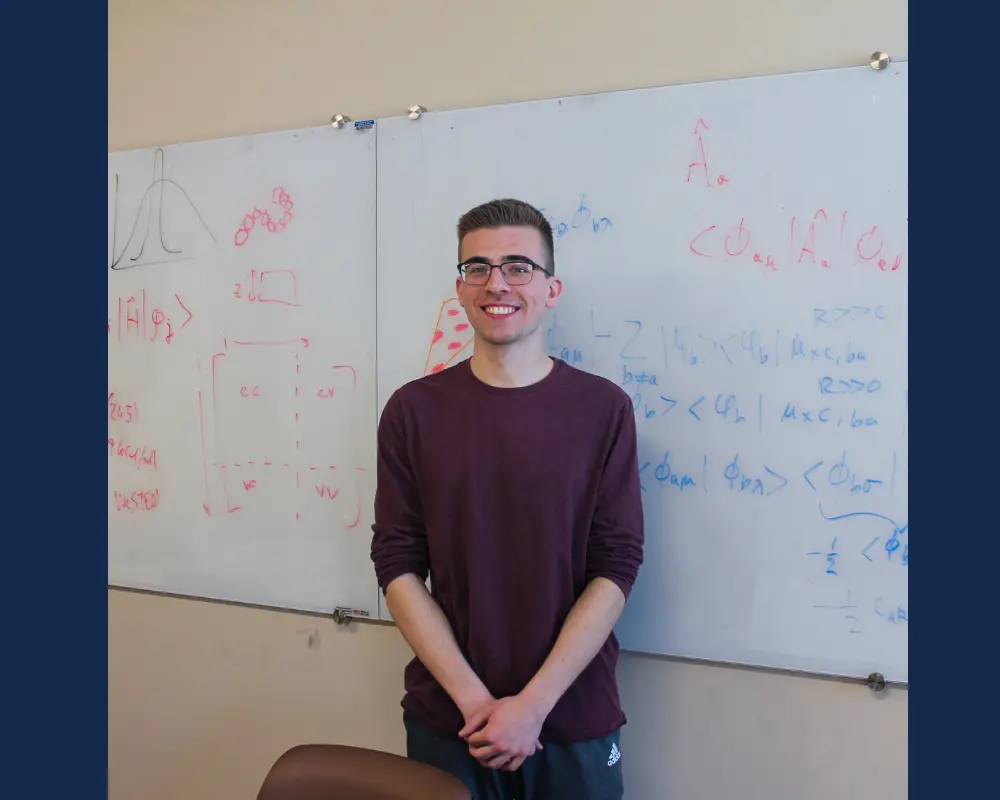
This summer we're profiling recipients of summer undergraduate research fellowships to learn about their academic interests and glance into their daily lives as undergraduate researchers.
Today we're speaking with MCB major Joseph Clark, a member of the Diwakar Shukla lab and a Jenner Family Summer Undergraduate Research Fellowship awardee.
Why did you decide to apply for a fellowship?
I’m very passionate about my research, and I wanted to stay on campus over the summer so I could continue working. Summer is a great time to focus on research because I’m not tied up with other obligations.
How did you get involved in Dr. Shukla’s lab?
The Shukla Group was recommended to me based on my interest in computational biology, so I reached out to Dr. Shukla via email. He put me in touch with one of his graduate students, who became my mentor.
Tell us about your research interests and what you’re working on this summer.
I am studying ribosomally synthesized and post-translationally modified peptides (RiPPs) which are natural products that have potential as antibiotics. We’re using deep learning methods to accelerate the design of novel RiPPs with desired properties. We’re also developing peptide-specific language models that are kind of like ChatGPT but for peptide sequences. We use them to predict the substrates of RiPP biosynthetic enzymes. It’s very common in the literature to use protein language models to perform peptide prediction tasks, but peptides have very distinct characteristics compared to proteins, so protein language models might not effectively capture peptide-specific properties.
What does an average day look like for you?
Every morning I go into the office, work at my desk, and read papers. My colleagues and I will have a lot of good conversations about the work we’re currently doing as well as new ideas. One of the best parts of research is getting to talk to a lot of really smart and creative people. That collaborative aspect really boosts productivity.
What do you hope to gain from this experience?
I hope to come out of this summer with a publication. This is a very hot area of research, so people are moving quickly. We already have one manuscript available as a pre-print, on which I am the first author.
What are your career or academic goals?
I’ll be applying to graduate school this fall. I hope to continue my current work on language models for predicting protein and peptide properties. It’s cool to be on the cutting edge of this peptide work; there aren’t a lot of people doing peptide language models.
Do you have any advice for other undergraduates who would like to get involved in research?
Try to make connections with many different people. Talking to people about their experiences and learning from them will help guide your own decision making. Reach out to grad students, ask for advice and have good conversations. Practice asking good questions and selling your ideas to people. It probably won’t happen overnight — you might not come up with a brilliant idea or complete a project in a really short time frame. But putting in a lot of hard work usually pays off.
How do you like to spend your free time?
After work I like to walk around and ride my bike; I try to get out in the evenings when it’s cool out. I often spend time with my friends who are also on campus.